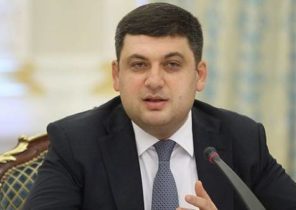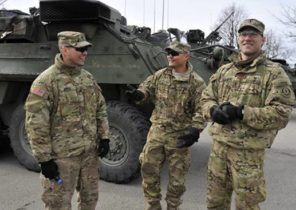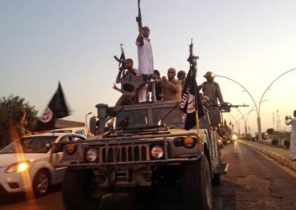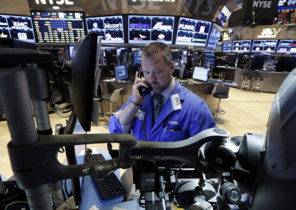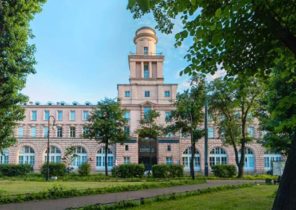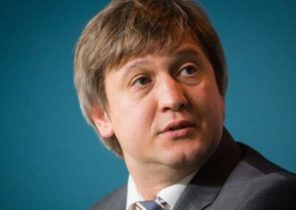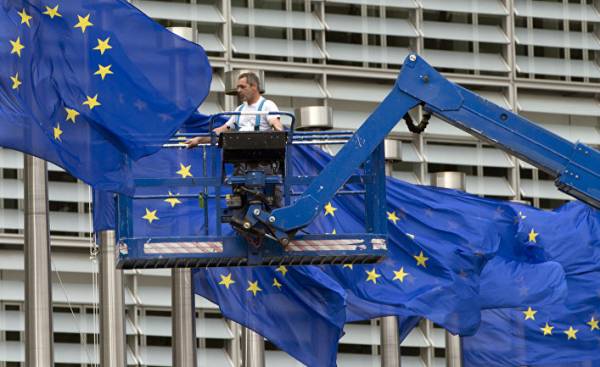
60 years ago in March was signed the Treaty of Rome. Was founded the EEC (European economic community), which became the starting point in the process of European unification. From this point on, the European project is really just developing. Of course, he spoke the language of the economy, that is something quantifiable and doomed to search for a variety of compromises.
The political element of the European project from the beginning was taken out of the brackets or postponed until better times. In fact, the Treaty of Rome, or, to speak more precisely, the economization of Europe was only a surrogate for the unification of Europe, a kind of prosthesis is the earlier debacle of the European defence community. This project in the summer of 1954, faced with a veto from the government of France. Since then, the defense of Europe was completely entrusted to NATO. In 1955, West Germany also joined with several of its divisions in the Transatlantic military Alliance. Thus, the defense of Europe was included in the competence of the States; and the Western part of the old continent could engage in economic prosperity.
This brief excursion into the 50-ies gives us some veil: formed in 80-e years the rhetoric of Europe made us forget about how we started the process of unification. When talking about Europe as a project created for the sake of peace, there is something funny: as if the Europeans are so often found themselves on the brink of war, conflicts that don’t know, for example, between Belgium and Luxembourg. You cannot, however, deny that from the very beginning the European project was a political reason for its occurrence, which soon faded into the background: the neutralization of Germany.
In the first institution of European integration, the European coal and steel community, founded in 1950, it is still possible to recognize the “German question”, even resulting in its economic form, in the Europeanization of military capabilities.
The “German question”, all the time covering the European veil, briefly resurfaced at the end of the cold war and the unification of Germany in 1989-90: who was then Chancellor of Germany Helmut Kohl (Helmut Kohl) yielded to pressure from the President of France françois Mitterrand (François Mitterrand), agreeing on the introduction of the future European currency, the Euro. This currency was supposed to be a deterrent — in the European sense — monetary sovereignty to the German Bundesbank. This goal turned exactly backwards, given that the usual criteria of the German economy and accounting eventually became more dominant in Europe. So, in response, some countries complained that they were imposed on German values and discipline.
In reality, Europe is a product of the cold war, the unique historical period. It was based on the logic of “civil war of values”, but only on a global scale: the conflict between the values of Freedom (in the West) and Equality (in the East). In Germany, however, the conflict was unfolding in the territory of one country: the FRG and the GDR were not separate States, they represented two different kinds of companies, which pushed their foreheads.
The end of the cold war resulted in dramatic changes. When at the end of 1986 Reagan and Gorbachev met in Iceland to ratify next year, the Washington Treaty on strategic nuclear weapons, the US President issued a Directive, which have turned a military tool intranet to a commercial Internet. This transition in communications technology marked the birth of Globalization.
In Europe the end of the cold war meant the awakening of the sleeping spirits of life. In 70-e and 80-e years the project of European unity did not move from a dead point, started talking about “eurosclerosis”. However, since 1989 when Russia left the territory of Central and Eastern Europe in the EU for ten years included a large number of countries. This process went more smoothly than in the 70-ies, when Europe came out of the dictatorship in Greece, Portugal and Spain, and Europe began to see themselves as a Bastion of modernity and democracy. When innocent European “telos” with all its benefits reached Ukraine, Moscow has interpreted it as a prelude to the beginning of regime change.
With the beginning of the occupation of Crimea in 2014, Russia broke the still existing rules of the game. The soft form of European intervention, consisting of a triple Alliance of democracy, human rights and peace, Russia responded much more rigid actions rough geopolitical steps are “covered” by military intervention and authoritarian gestures. Constantly threatening their neighbours, Russia has brought a historically turbulent area from the Baltic to the Black sea to the Bosporus and the Levant, to the constant state of excitement that reminds us of the geopolitical situation in the nineteenth century. Poland, the Baltic States and their other neighbours already exist, as mentioned in the century, “sous l’oeil des russes”, that is under the supervision of Russia. In the future Europe may wonder: “Who is ready to die for Tallinn?”
Return to the world stage Russia is inextricably linked to the crisis of the EU and with an increasingly unpredictable America. The EU’s crisis signals the shortcomings of supranational integration in Europe, which is becoming more atomized. In the absence of the framework of the cold war, the European project loses its stability, and nationalistic centripetal forces are increasing their influence in matters concerning the single currency, and in connection with the permeability of borders. On both issues — the Euro and refugees — Germany shows its role of the European hegemony, acting with good intentions. In terms of the economy, and in terms of morality.
Germany’s role in Europe is really paradoxical. At the beginning of the process of unification of Europe was to contain Germany. But in the end we got to Europe, which in some respects became more Germanized, and it’s obvious, if you look at the economy. All slightly more difficult when we are talking about morality. Of course, Germany has learned the monstrous historical lesson from the national socialist past.
In this respect, it undoubtedly took the right decisions on the issue of abandoning nuclear energy or receive almost unlimited number of refugees. But what in the European context the decisions were taken without consultations with European partners, is now making Germany not just hegemony with good intentions, but puts it in terms of isolation. And its decisions become the subject for discussion.
This paradox clearly emerges in public opinion not only within Germany. Angela Merkel, who until recently was hailed as iron, but at the same time soft lady-Chancellor, head of the new, more free and cosmopolitan Germany, as a result of losing his supporters, and along with this decline goes the “culture of hospitality” towards refugees. You need to study the work of depth psychology to explain why the opponent Merkel for the social Democrats, Martin Schulz (Martin Schulz) gaining votes in the polls. But it is, in fact, returns us to a key question concerning social security and social expectations.
The rise of nationalist parties and movements that are erroneously referred to as a populist, is really linked with major metamorphoses era of globalization. Especially with the fact that, particularly here in Europe, with the historic relationship between the national government, on the one hand, and the desire for a “social state” and its benefits. In the U.S., meanwhile, President trump, who is pursuing an increasingly isolationist policy is retaliation not so much for his presidency, how much for the policies of FDR that brought America from that isolation, which trump wants her back. All us institutions and civil rules date back to the politics of FDR. The end of the cold war and the postwar world order has come in America. Now we are experiencing a time of profound historical pause.
